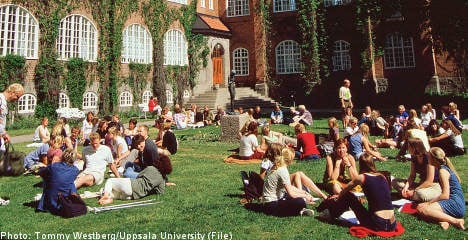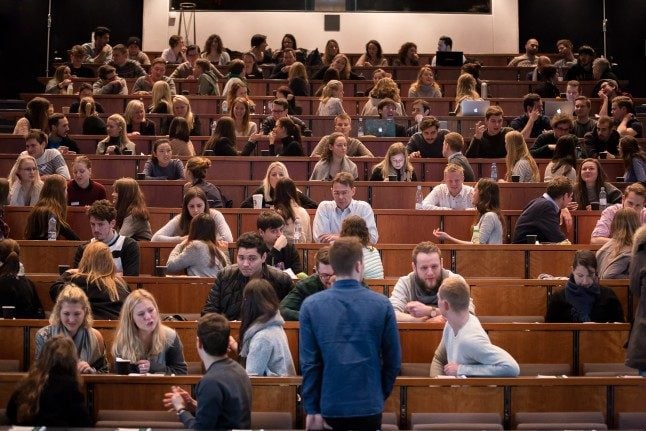Monday marked the last day that foreign students could apply to study at Swedish higher education institutions for the autumn 2011 term, the first for which non-EEA and non-Swiss students will be required to pay tuition fees.
According to the Swedish Agency for Higher Education Services (Verket för högskoleservice, VHS), which coordinates the admissions process for colleges and universities, the number of applicants for master’s programmes fell sharply by 73 percent compared with 2010.
Separately, the number of people who applied for international courses dropped by 86 percent compared with last year.
“It is more or less what we had expected. We had expected a large drop because of the tuition fees in the autumn,” Tuula Kuosmanen, VHS’ director for admissions operation, told The Local on Tuesday.
The number of applicants for master’s programmes in the 2011 autumn semester was 25,094 compared with 91,788 candidates for the fall of 2010.
The total number of applicants for international courses, which will be offered at some of the country’s universities and colleges starting in the autumn, was 5,772. The number of applicants to the international courses in the autumn of 2010 was 40,429.
“Right now, our statistics show that we have about 23,000 candidates who will pay the fees and about 6,000 who are classified as exempted. We will only know the number of those who complete their applications by paying the registration fee by the last payment date on January 28th,” added Kuosmanen.
When the admissions round for autumn 2011 admission to international courses and master’s programmes at Swedish colleges and universities opened on December 1st, 2010, it marked the first time that students from outside the EU, EEA and Switzerland would be charged tuition fees.
Kuosmanen noted that it took Denmark about three to four years to before international student application numbers recovered to previous levels after it introduced tuition fees in 2006.
She also noted that Danish universities and colleges now have more students from other EU countries than before.
She cited the Netherlands as undergoing a similar experience and said that whether Sweden experiences a similar rebound depends on how the universities will roll out scholarship programmes in the future and what strategies, countries, and areas they decide to focus on.
“In general, we see a decrease in the number of international applicants, as was expected, given that this will be the first year that Sweden charges fees,” said Kuosmanen.
She added that she was unsure how the drop in applicants would affect staffing levels at Swedish universities and colleges, especially for teachers of Swedish as a second language courses.
The countries with the greatest number of applicants for master’s programmes in 2011 were Ethiopia, Pakistan, Bangladesh, Iran, Germany, China, India, the UK, Nigeria and the US.
For international courses, the countries with the largest number of applicants were Nigeria, Pakistan, Ethiopia, Bangladesh, Iran, Ghana, Cameroon, Kenya and the UK.



 Please whitelist us to continue reading.
Please whitelist us to continue reading.
Member comments